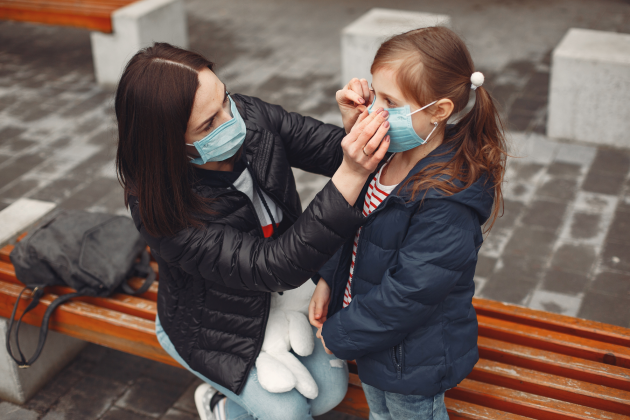ANADARKO – While mask mandates have triggered state and federal lawsuits in Oklahoma, the mask ordinance in Anadarko has spawned “very little” complaint, City Manager Kenneth Corn said recently.
Anadarko adopted a mandatory mask requirement in April and the city council has extended that edict to November 9, when it will be reviewed again.
The ordinance decrees that anyone in a public building that provides services or sells goods must wear a mask. Additionally, all commercial business employees are required to wear masks unless a plexiglass pane separates the worker from the customer.
“We have received very little push-back” over the mandate, Corn said Saturday. “We researched this issue, and the U.S. Supreme Court has ruled on it before.”
There are limits on personal freedom, Corn noted. “You can smoke, but you can’t smoke in public places anymore because it endangers the health of others. And you can own property, but you can’t spread sewage over it because it’s a health hazard.”
He pointed to Jacobson v. Massachusetts, a United States Supreme Court case decided in 1905 in which the Justices upheld the authority of states to enforce a compulsory vaccination law. The Court’s decision articulated the view that individual liberty is not absolute and is subject to the police power of the state.
Justice John Marshall Harlan delivered the decision for a 7–2 majority that the Massachusetts law did not violate the Fourteenth Amendment.
The Court held that “in every well-ordered society charged with the duty of conserving the safety of its members,
the rights of the individual in respect of his liberty may at times, under the pressure of great dangers, be subjected to such restraint, to be enforced by reasonable regulations, as the safety of the general public may demand.”
Liberty secured by the U.S. Constitution “does not import an absolute right in each person to be, at all times and in all circumstances, wholly freed from restraint,” Harlan wrote. “There are manifold restraints to which every person is necessarily subject for the common good.”
The police power of a state “must be held to embrace...such reasonable regulations established directly by legislative enactment as will protect the public health and the public safety.”
In another case, Marshall v. United States (1974), the nation’s highest court declared that when public officials “undertake to act in areas fraught with medical and scientific uncertainties,” their latitude “must be especially broad...” Furthermore, “Where those broad limits are not exceeded, they should not be subject to second-guessing by an ‘unelected federal judiciary’ which lacks the background, competence, and expertise to assess public health and is not accountable to the people.”
The latter was written by Chief Justice John Roberts in a 5-4 decision in May in which the Supreme Court denied the request from a California church to remove restrictions on large church gatherings during the coronavirus pandemic. The Justices ruled in favor of California Gov. Gavin Newsom’s guidelines on in-person worship services. The guidelines decree that places of worship must “limit attendance to 25% of building capacity or a maximum of 100 attendees, whichever is lower.”


